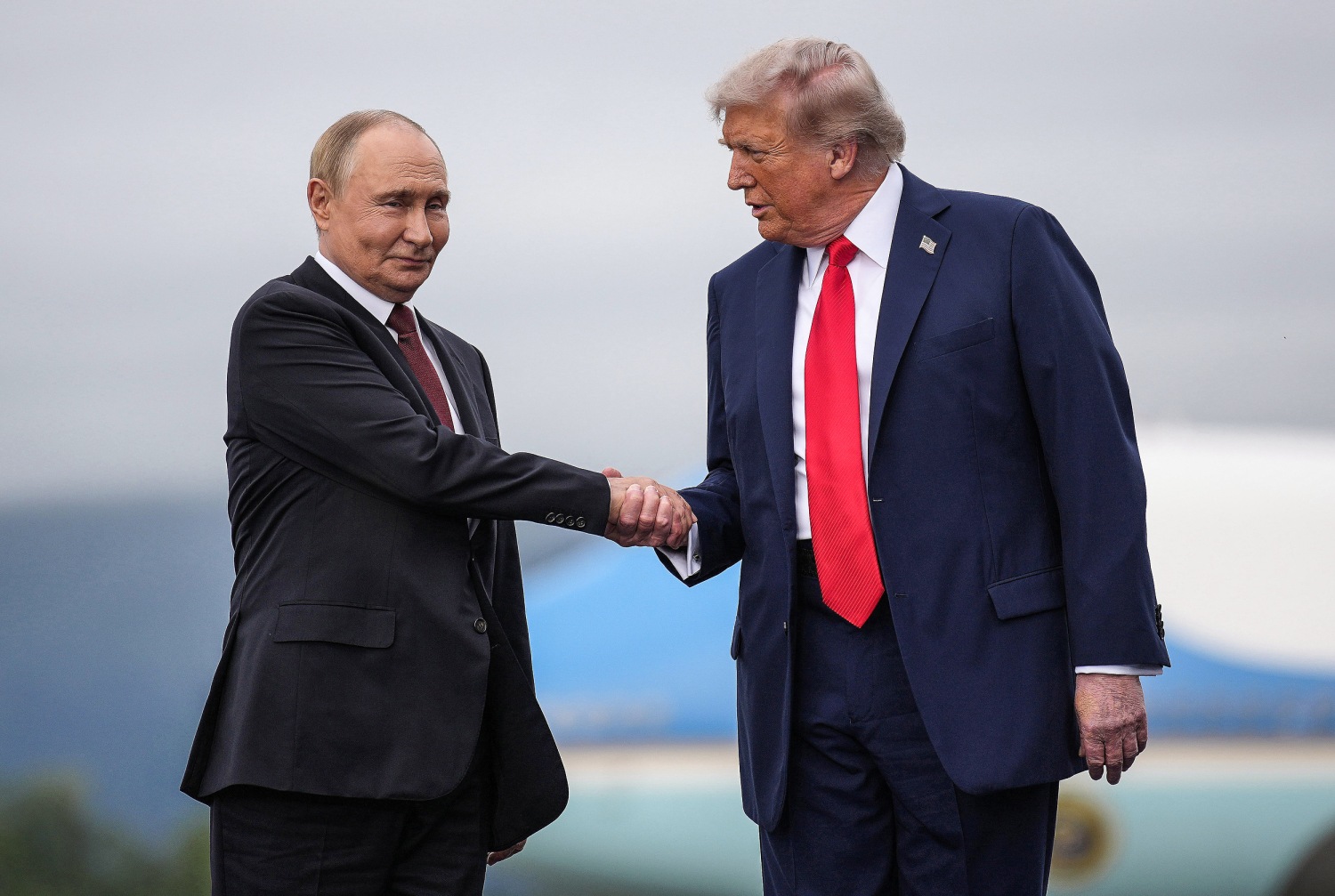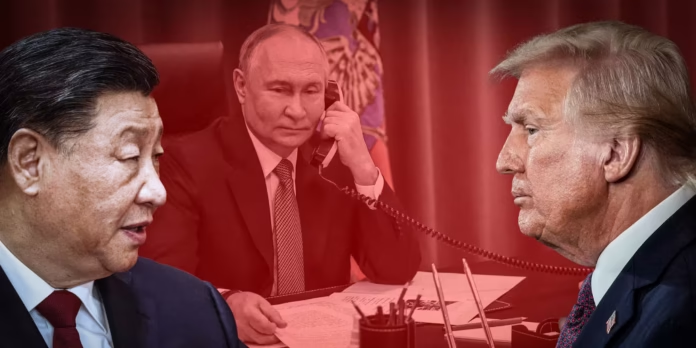Trump Looks to Beijing for Diplomatic Leverage on Moscow
US President Donald Trump has expressed hope that China will assist in persuading Russia to move towards peace negotiations to end the ongoing war in Ukraine.
Speaking aboard Air Force One en route to Asia, Trump told reporters, “I’d like China to help us out with Russia,” ahead of his upcoming meeting with Chinese President Xi Jinping in South Korea.
The US president is embarking on a short but high-stakes tour of Asia, where the future of Washington’s relations with Beijing and efforts to curb the Russia-Ukraine conflict are expected to dominate discussions.
However, analysts caution that Trump’s optimism may face obstacles, as China remains Moscow’s most critical ally, providing an economic lifeline to Russia amid Western sanctions.
China’s Deep Ties With Russia Complicate Trump’s Vision

China has maintained strong political and economic ties with Russia throughout the war, often resisting Western pressure to condemn Moscow’s invasion.
Beijing continues to buy discounted Russian oil and supply dual-use materials—items that can serve both civilian and military purposes—helping to sustain Russia’s wartime economy.
Despite this, Trump insists that President Xi holds “significant influence” over Vladimir Putin and could play a pivotal role in ending the conflict.
“I have a very good relationship with President Xi. He wants to see peace, and I think he can make a difference,” Trump said earlier this week.
His remarks come as Ukraine faces one of its toughest weeks since the conflict began: Washington refused to provide Tomahawk cruise missiles, European leaders withheld frozen Russian funds, and a fresh wave of Russian airstrikes caused extensive casualties across Ukraine.
Frustration Mounts as Trump’s Peace Efforts Stall

Trump has made resolving the Russia-Ukraine war a centerpiece of his foreign policy, but progress has been elusive.
A summit with President Putin in August failed to yield any breakthrough, leading to growing frustration within the White House.
“Every time I speak to Vladimir, the conversations are good—but they don’t go anywhere,” Trump admitted earlier this week.
In a bid to ramp up pressure on Moscow, Trump announced new sanctions targeting Russia’s two largest oil companies—the first direct US intervention under his administration aimed at constraining Russia’s war funding.
The Kremlin dismissed the move, claiming that its economy was “immune” to US sanctions.
Meeting With Xi to Address Multiple Global Flashpoints
While Thursday’s meeting between Trump and Xi is primarily focused on trade tensions and strategic rivalry, the US president said the conversation would cover “everything,” including Ukraine.
“I’ll talk to Xi about a range of issues, but the war in Ukraine is very important,” Trump said. “China has the power to help us achieve peace.”
The two leaders last met in 2019, during Trump’s first term, and relations have since been strained by tariff disputes, Taiwan tensions, and technological competition.
Observers suggest that Trump’s outreach to Xi could signal a pragmatic shift, as Washington seeks a partner capable of influencing Moscow’s stance.
China, Russia, and North Korea Strengthen Ties
Last month, the growing alliance between Beijing, Moscow, and Pyongyang was on display when Putin, Xi, and North Korean leader Kim Jong Un attended a massive military parade in Beijing.
The event showcased “unprecedented” cooperation between the three nations, alarming Western governments.
Putin hailed China as a “strategic partner”, praising the “friendship with no limits” that the two nations have cultivated in defiance of global sanctions.
Analysts believe this alliance complicates Trump’s diplomatic challenge, as Beijing may be unwilling to jeopardize its ties with Moscow for Washington’s sake.
Escalation Continues in Ukraine and Russia’s Border Regions
As Trump made his remarks from Air Force One, Russian missiles struck multiple Ukrainian cities, including Kyiv, killing several civilians and causing extensive damage.
Ukrainian President Volodymyr Zelensky condemned the attacks, saying, “No country should be left alone in the face of such evil,” and urged Western allies to intensify military support.
Meanwhile, in Russia’s Belgorod region, authorities ordered evacuations after a Ukrainian strike damaged a reservoir, sparking fears of flooding.
The incidents underscore that the conflict remains volatile, even as diplomatic efforts to end the war appear stagnant.
Diplomatic Hopes and Strategic Realities
Despite his confidence in a potential breakthrough, Trump faces an uphill battle in persuading Beijing to act as a neutral mediator.
China’s refusal to criticize Russia’s invasion, coupled with its growing economic interdependence with Moscow, makes meaningful cooperation uncertain.
Still, Trump maintains that personal diplomacy could yield results where traditional channels have failed.
“If peace can be achieved, it will take everyone—including China—to make it happen,” he said.
As Trump heads into meetings in Seoul and Tokyo before his expected summit with Xi, the world watches closely to see whether Washington can bridge the divide between Beijing and Moscow — and bring the devastating war in Ukraine one step closer to an end.

